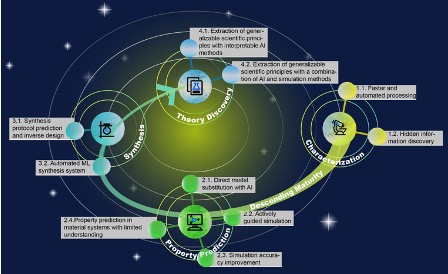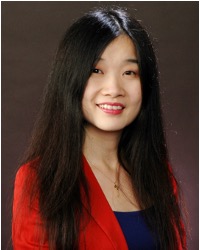Active Learning Guided Materials Synthesis
and Full-map Understanding
Department of Chemical and
Biomolecular Engineering, National University of Singapore,
4 Engineering Drive 4, Singapore 117585,
Singapore.
ABSTRACT: The rapid development of deep
learning enabled artificial intelligence (AI) has brought new opportunities to
accelerate conventional experimental design in materials science. The discovery
of high-dimensional synthesis recipes that yield desired material properties
used to be costly and time-consuming, while advances in machine learning (ML) driven
high-throughput experiments are able to rapidly achieve optimal conditions to
produce the target materials. In this talk, I will first provide an overview on
ML tools for material discovery and sophisticated applications of different ML
strategies, which shows how AI strategies are applied through material
discovery stages (including characterization, property prediction, synthesis,
and theory paradigm discovery. See Figure 1). Our recently developed online
active learning approaches will then be discussed, which can effectively guide
experiments and achieve full-map understanding of the design space. Several
case studies will be demonstrated including: 1) a two-step active learning
framework that combines Bayesian Optimization (BO) and Deep Neural Network
(DNN) in a loop with a high-throughput microfluidic platform, to optimize the
synthesis of silver nanoparticles with the desired absorbance spectrum, and 2)
a hierarchical AI framework, tested for strain sensor material synthesis.
Moreover, we have developed a series
of interpretation and visualization approaches to understand
"black-box" ML models and make them more favoured by domain experts
to extract knowledge of complex systems that embed a huge amount of hidden
information. Although promising opportunities are identified, many challenges
exist this highly interdisciplinary field, such as construction of valuable and
open datasets, in-depth understandings of descriptors, lack of standard
algorithms workflow and fully autonomous experimental platforms. We are aiming
to enable a better integration of AI methods with the material discovery
process, with the keys to successful applications of AI in material discovery
and challenges fully addressed.

Figure 1. AI Applications through the Whole Life Cycle of Material Discovery.
Keywords:active learning; materials synthesis; deep neural network;
high-throughput experiment

Dr Xiaonan Wang is an assistant professor in the Department of Chemical and Biomolecular Engineering at the National University of Singapore (NUS). She received her BEng from Tsinghua University in 2011 and PhD from University of California, Davis in 2015. After working as a postdoctoral research associate at Imperial College London, she joined NUS as an assistant professor since 2017. Her research focuses on the development of intelligent computational methods including multi-scale modelling, optimization, data analytics and machine learning for applications in advanced materials, energy, environmental and manufacturing systems to support smart and sustainable development. She is leading a Smart Systems Engineering research group at NUS of more than 20 team members as PI and also the deputy director of the Accelerated Materials Development programme in Singapore (S$25M funding). She has published more than 50 peer-reviewed papers, organized and chaired several international conferences, and delivered more than 40 presentations and invited talks at international conferences and universities on five continents. She was recognized as an IChemE Global Awards Young Researcher finalist and selected for Royal Society International Exchanges Award, as well several best paper awards at IEEE and Applied Energy Conferences.